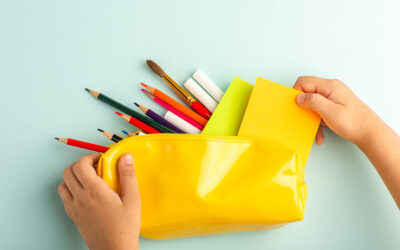With a La Niña weather system back for another year, Queensland residents are being urged to be prepared for a summer of wild weather. The Bureau of Meteorology says the La Niña typically increases the chance of above-average rainfall for northern and eastern Australia during spring and summer.
With Get Ready Queensland Week in full swing, the Sunshine Coast Council and the Queensland Reconstruction Authority have joined forces and are encouraging the local community prepare for a summer of wild weather.
Local Disaster Management Group (LDMG) Chair and Sunshine Coast Council Mayor Mark Jamieson says anyone living on the Sunshine Coast knows how quickly disaster can strike.
“It’s not a matter of if, but when,” Mayor Jamieson says. “That’s why it’s important to prepare now, so you are best placed to handle whatever Mother Nature throws at us.”
He says Council and the LDMG continue preparations all year round.
“Each of us has a role to play and being prepared is everyone’s responsibility.”
Simple steps to prepare your family and home for storms
- Understand your risk.
- Prepare a household emergency plan.
- Pack an emergency kit.
Queenslanders are more affected by natural disaster than anyone else in Australia. The most common types of disasters are floods, storms, cyclones and storm surges, and bush fires. Where you live will determine the type of disaster affecting you, which is why it’s important to know what disasters you’re likely to see.
When it comes to preparing your household emergency plan, ensure everyone in your household knows what to do. Talk to your family – and even your neighbours and friends – about where you’ll go if you need to evacuate, how you’ll get away, what happens if you need to evacuate but aren’t home, and how much you can realistically take with you. The Government has a great guide on what you should consider for your household emergency plan.
Your emergency kit should have enough supplies to last three days in case your home loses access to power, water and gas or you become cut off from the supermarket or pharmacy.
Keep your emergency kit in a strong waterproof storage container. Include items like a first aid kit, important medication, a torch, spare batteries, hand sanitiser, and enough food and water for three days. You will also need a battery powered radio.
“I encourage everyone to save a copy of the list and stock up on essentials next time you are grocery shopping,” Mayor Jamieson says.
Sunshine Coast still recovering
Mayor Jamieson says parts of the Sunshine Coast are still recovering from the heavy rain that hit the region between February and May. The rain caused flooding, fallen trees and major landslips.
“The largest total in our region was in Maleny with Council recording 2,200mm of rain during that period,” he says.
For more information on the latest updates, practical resources and what to do before, during and after an emergency, visit Council’s Disaster Hub website.
You might also like…


